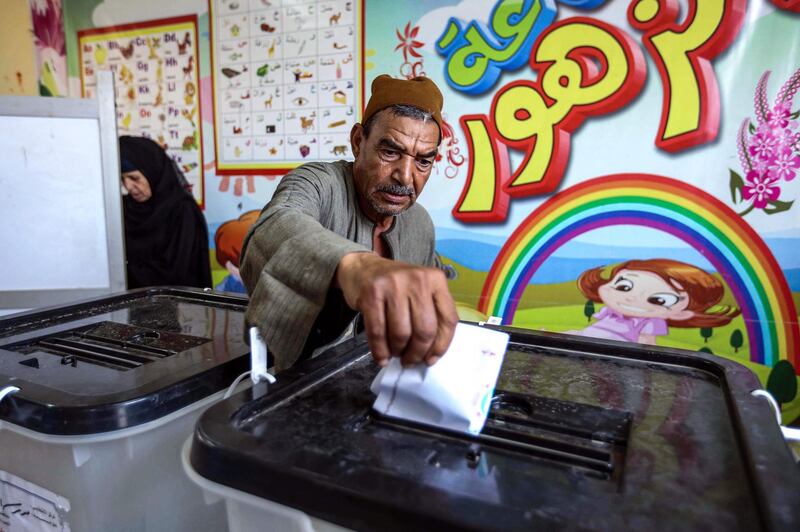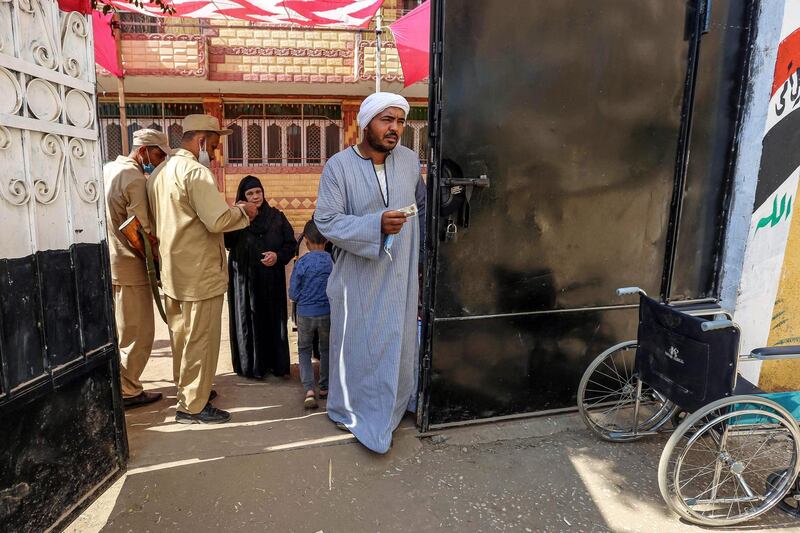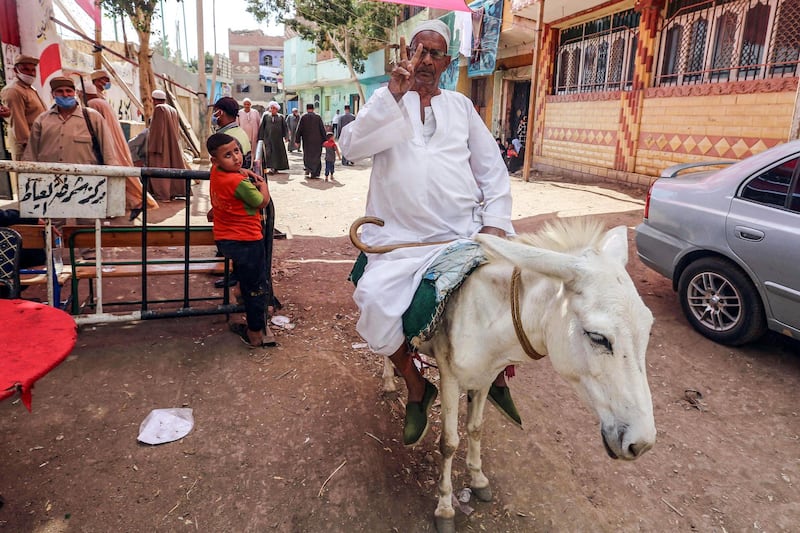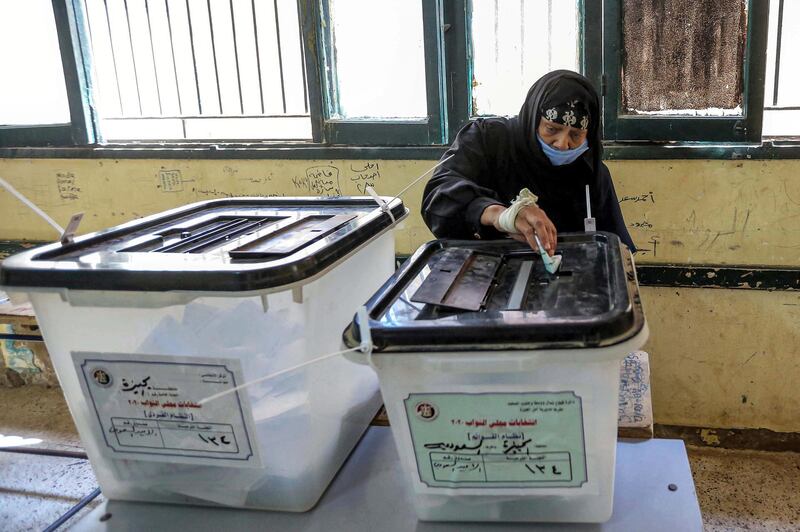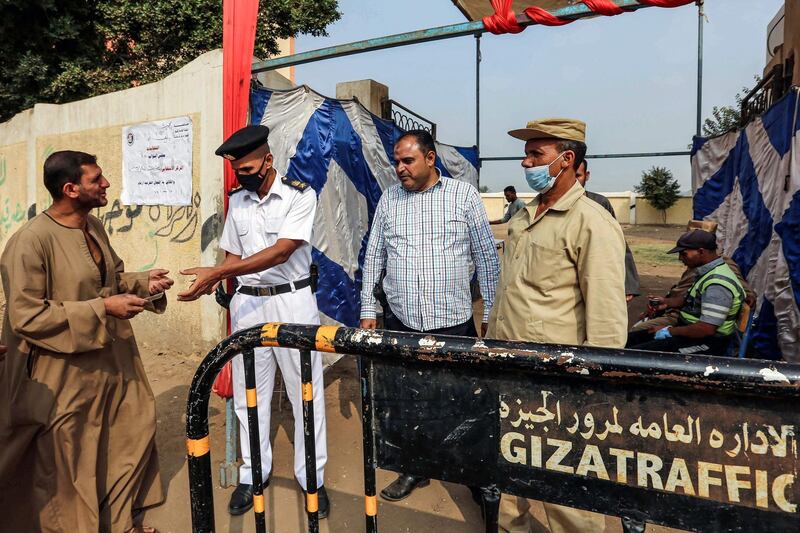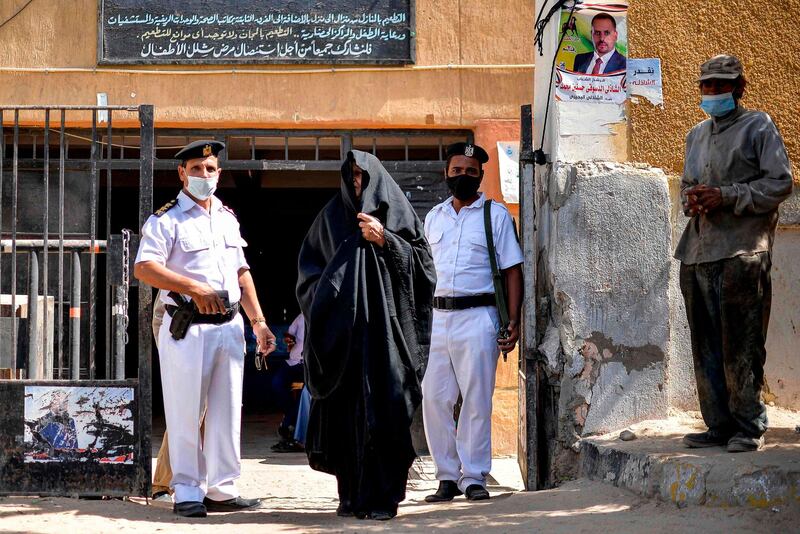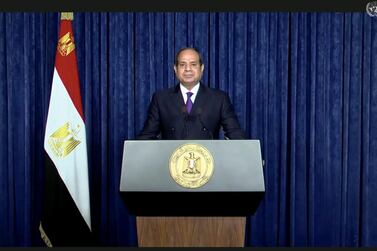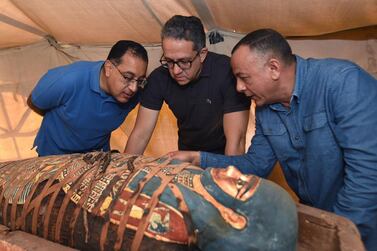Egyptian voters went to the polls on Saturday in the first stage of a staggered election for a new parliament that will almost certainly be as supportive of President Abdel Fattah El Sisi’s government as its predecessor. It is the third nationwide vote in the country in two years.
Egyptian expatriates began the voting on Wednesday, mailing their ballots to the country’s diplomatic missions across the world, but Saturday was the first of two days of balloting in Egypt, which has more than 63 million registered voters. The second phase of voting at home and abroad will take place next month, with expatriates voting on November 4, 5 and 6, while voters at home go to the polls on November 7 and 8. Both stages will be followed by run-off votes where needed and the final results will be announced in December.
The first phase of voting covers 14 of the country’s 27 provinces, including Cairo’s twin city of Giza and the Mediterranean city of Alexandria.
Attention was expected to be on the turnout, to gauge popular interest in Egypt’s political process. The electoral commission and commentators have been urging voters to cast their ballots. Voting was slow when polls opened at 9am, but picked up several hours later in some polling centres in Giza, where a wealthy businessman, the son of the chairman of a top football club and a media figure are locked in a tough contest.
By late afternoon, long lines of voters could be seen outside some polling centres there, but others were almost deserted.
Two months ago, only 14.2 per cent of Egypt's registered voters cast their ballots to elect 200 senators. The exceptionally low turnout prompted the electoral commission to say then that it intended to prosecute 54 million eligible voters who stayed away from the polls, but that decision was never acted upon. Commentators at the time attributed the low turnout to the pandemic and voter apathy.
“I am here to vote so I am not forced to pay the 500-pound fine,” said Fathya Mohammed, 55, a mother of five from Giza. She was referring to the rarely applied fine levelled against voters who stay away from the polls without a good reason.
The Giza section of Greater Cairo, like the rest of the Egyptian capital, a giant metropolis that is home to 20 million people, showed little sign of an ongoing election beside the dozens of giant billboards bearing the image of candidates along with catchy, patriotic phrases. Traffic was normal for a Saturday, the second and final day of the weekend. The entrances of polling centres were festooned with giant red, black and white Egyptians flags. Police ensured that voters wore masks in compliance with preventive measures against the coronavirus. At some polling centres, patriotic songs blared from giant speakers.
The first of the three nationwide votes was last year, when Egyptians went to the polls for a referendum that adopted constitutional amendments. They included allowing Mr El Sisi to stay in power until 2030 if he chose to do so and resurrecting the Senate, which had been abolished by Egypt’s 2014 constitution.
Parliament has a total of 596 deputies of whom 28 are appointed by the president. Half of the remaining 568 deputies are elected from candidates contesting the vote as members of “closed lists”, while the other half are either party or independent candidates.
The National List for Egypt’s Sake, a coalition of pro-government parties, is expected to win all 284 seats allotted to closed lists. Pro-government parties are also expected to take a majority of the remaining seats, with opposition candidates likely to win a small number that mirrors their modest representation in the outgoing chamber.
As with the Senate, women will make up a quarter of MPs in the new lower house, which will serve for five years. This quota was introduced as part of the amendments to the constitution adopted in last year’s referendum. The amendments also gave the military a supreme political role and gave Mr El Sisi more control over the country’s judiciary.
The latest election comes as the government faces renewed pressure from rights groups, who accuse it of detaining thousands of activists and supporters of the outlawed Muslim Brotherhood since Mr El Sisi’s election in 2014.
A year earlier, Mr El Sisi, who was defence minister at the time, led the military’s removal of Mohamed Morsi, a Brotherhood stalwart whose one-year rule was divisive. Morsi’s removal came amid mass street protests against his rule and the Brotherhood.
Egypt’s government has maintained it has no political prisoners and said due process was being observed with all detainees.
Mr El Sisi has declared the economy and stability to be his priorities as he presses ahead with his reforms, which include the upgrading of infrastructure and building new cities.
The reforms were praised by international financial agencies but have hit the poor and middle classes hard.

